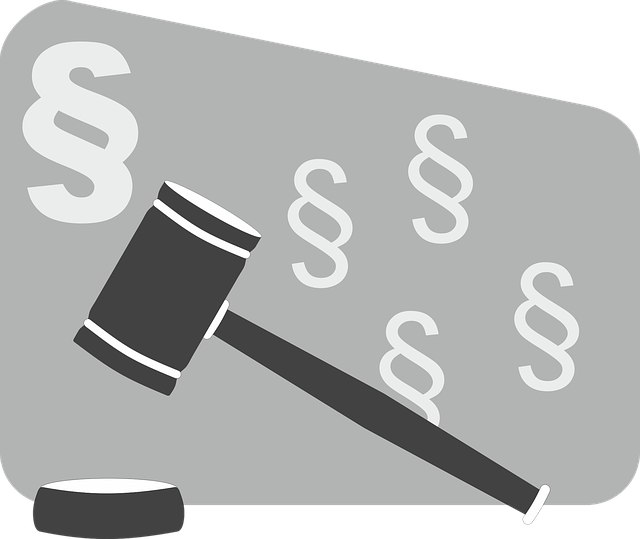Antitrust laws are crucial for maintaining a fair business environment, protecting consumers, and fostering economic growth by preventing corporations from engaging in anti-competitive practices. Adhering to regulations, especially during partnerships or mergers, is critical to avoid severe legal consequences like penalties for violating the Business Partnership Agreement (BPA). Key components in a BPA, including clear role definitions and clauses on market allocation, price fixing, and output restrictions, must be carefully considered to prevent antitrust violations. Breaching these obligations can lead to significant fines, lawsuits, reputational damage, and disruption of business alliances. Proactive measures like regular audits, updates, and transparent communication can help avoid breaches and their consequences, aligning with legal standards and preserving fair market competition.
“Antitrust Violation Cases: Navigating Business Partnerships with Careful Consideration. Discover the intricacies of antitrust laws designed to foster fair competition and protect consumers. Learn how a breach of a business partnership agreement can lead to severe consequences, including legal actions and penalties. This comprehensive guide explores identifying red flags, understanding partnership obligations, and implementing preventative measures to avoid antitrust issues in your business dealings.”
- Understanding Antitrust Laws and Their Purpose
- Identifying Components of a Business Partnership Agreement
- Consequences of Breaching Partnership Obligations
- Legal Actions and Penalties for Antitrust Violations
- Preventative Measures to Avoid Antitrust Issues in Partnerships
Understanding Antitrust Laws and Their Purpose

Antitrust laws are designed to maintain a fair and competitive business environment by preventing corporations from engaging in anti-competitive practices. These laws aim to protect consumers, promote free markets, and foster economic growth. Understanding these regulations is crucial for businesses, especially those involved in partnerships or mergers, as breaching antitrust principles can have severe consequences. A Business Partnership Agreement breach, for instance, could lead to significant legal repercussions if it involves restricting trade or fixing prices—actions strictly prohibited by antitrust laws.
The purpose of antitrust legislation is not just to penalize wrongdoers but also to serve as a deterrent against future violations. Businesses with an unprecedented track record of adhering to these rules can avoid indictment and maintain their competitive edge. White-collar defense strategies often focus on ensuring compliance, transparency, and fair business practices to steer clear of legal pitfalls related to antitrust violation cases.
Identifying Components of a Business Partnership Agreement

Identifying the components of a Business Partnership Agreement is crucial to understanding potential antitrust violation cases. Such agreements should clearly define each party’s roles, responsibilities, and obligations to ensure fair competition and avoid anti-competitive practices. Key clauses include those that delineate market allocation, price fixing, or output restrictions, as these can lead to significant legal repercussions if breached.
The consequences of breaching a Business Partnership Agreement, especially regarding antitrust violations, can be severe for both corporate and individual clients involved. White-collar and economic crimes, often intertwined with such breaches, can result in substantial fines, legal penalties, and reputational damage. Each respective business must ensure its agreements comply with antitrust laws to protect itself from these adverse effects.
Consequences of Breaching Partnership Obligations

The consequences of breaching partnership obligations within a Business Partnership Agreement (BPA) can be severe and far-reaching. Such violations disrupt the delicate balance established by the BPA, which is designed to foster mutual growth and success for all involved parties. When one partner fails to uphold their commitments, it undermines the trust and collaboration essential to any successful business alliance.
High-stakes cases involving antitrust violation can have significant legal and financial repercussions across the country. Partners found guilty of collusion, price fixing, or market allocation—common forms of BPA breaches—may face substantial fines, lawsuits, and reputational damage. For his clients, these consequences can be especially detrimental, impacting their ability to maintain competitive positions in the market and future partnerships.
Legal Actions and Penalties for Antitrust Violations

In cases of antitrust violation, legal actions are swiftly initiated to rectify and penalize wrongdoers. These violations can have severe consequences for businesses, particularly those involved in complex business partnership agreements. When an agreement is breached, it not only disrupts market equilibrium but also invites legal scrutiny from authorities charged with upholding fair competition. The penalties for such infringements can be substantial, including monetary fines and even criminal charges for individuals found culpable.
Corporate and individual clients alike face the brunt of these violations, as they may be held liable for participating in anti-competitive practices. Avoiding indictment requires meticulous compliance with antitrust laws and regulations. Across the country, numerous cases have highlighted the importance of transparency and fair dealing in business partnerships to prevent such legal pitfalls.
Preventative Measures to Avoid Antitrust Issues in Partnerships

To avoid antitrust issues in business partnerships, it’s crucial to implement preventative measures from the outset. This begins with a thorough review and understanding of the partnership agreement. Key clauses should address competition, market share, and exclusivity to ensure they align with antitrust laws. Both parties must commit to preserving fair market competition and openly communicate any potential conflicts of interest. Regular audits and updates to these agreements throughout the partnership can help mitigate risks.
Additionally, establishing clear guidelines for data sharing, joint ventures, and pricing strategies is vital. Training employees on antitrust compliance and conducting regular workshops can foster a culture of awareness. Across the country, companies have successfully won challenging defense verdicts by demonstrating such proactive measures. By navigating all stages of the investigative and enforcement process with robust internal controls in place, partnerships are better equipped to protect against breach consequences and maintain their integrity.
In navigating complex business partnerships, understanding antitrust laws and their implications is paramount. By recognizing the critical components of a well-drafted Business Partnership Agreement and proactively addressing potential breaches, businesses can mitigate risks and avoid severe consequences. Antitrust violations carry significant legal penalties, underscoring the importance of adhering to partnership obligations. Proactive measures, such as comprehensive agreements and ongoing compliance monitoring, are essential to foster fair competition and protect against antitrust issues in partnerships.






